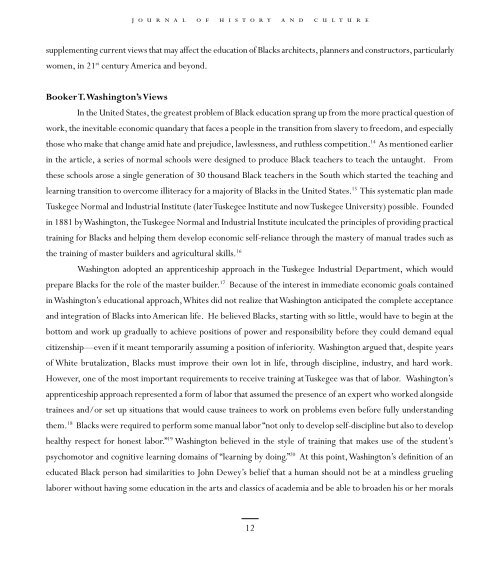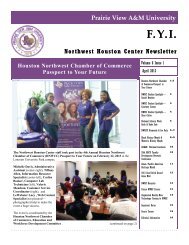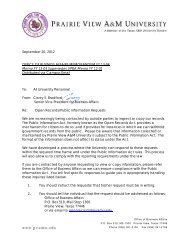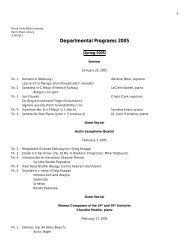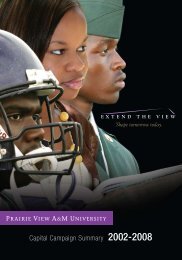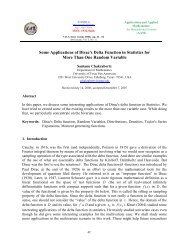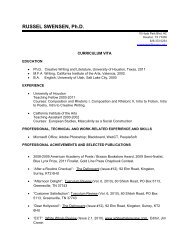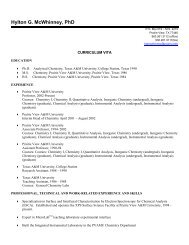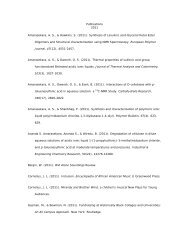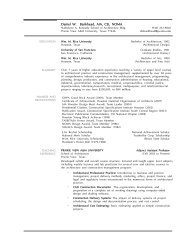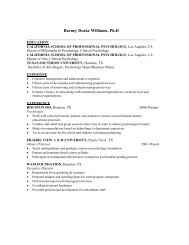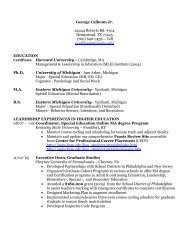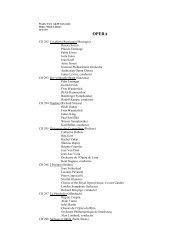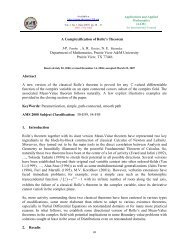Journal of History and Culture Journal of History and Culture
Journal of History and Culture Journal of History and Culture
Journal of History and Culture Journal of History and Culture
You also want an ePaper? Increase the reach of your titles
YUMPU automatically turns print PDFs into web optimized ePapers that Google loves.
j o u r n a l o f h i s t o r y a n d c u l t u r e<br />
supplementing current views that may affect the education <strong>of</strong> Blacks architects, planners <strong>and</strong> constructors, particularly<br />
women, in 21 st century America <strong>and</strong> beyond.<br />
Booker T. Washington’s Views<br />
In the United States, the greatest problem <strong>of</strong> Black education sprang up from the more practical question <strong>of</strong><br />
work, the inevitable economic qu<strong>and</strong>ary that faces a people in the transition from slavery to freedom, <strong>and</strong> especially<br />
those who make that change amid hate <strong>and</strong> prejudice, lawlessness, <strong>and</strong> ruthless competition. 14 As mentioned earlier<br />
in the article, a series <strong>of</strong> normal schools were designed to produce Black teachers to teach the untaught. From<br />
these schools arose a single generation <strong>of</strong> 30 thous<strong>and</strong> Black teachers in the South which started the teaching <strong>and</strong><br />
learning transition to overcome illiteracy for a majority <strong>of</strong> Blacks in the United States. 15 This systematic plan made<br />
Tuskegee Normal <strong>and</strong> Industrial Institute (later Tuskegee Institute <strong>and</strong> now Tuskegee University) possible. Founded<br />
in 1881 by Washington, the Tuskegee Normal <strong>and</strong> Industrial Institute inculcated the principles <strong>of</strong> providing practical<br />
training for Blacks <strong>and</strong> helping them develop economic self-reliance through the mastery <strong>of</strong> manual trades such as<br />
the training <strong>of</strong> master builders <strong>and</strong> agricultural skills. 16<br />
Washington adopted an apprenticeship approach in the Tuskegee Industrial Department, which would<br />
prepare Blacks for the role <strong>of</strong> the master builder. 17 Because <strong>of</strong> the interest in immediate economic goals contained<br />
in Washington’s educational approach, Whites did not realize that Washington anticipated the complete acceptance<br />
<strong>and</strong> integration <strong>of</strong> Blacks into American life. He believed Blacks, starting with so little, would have to begin at the<br />
bottom <strong>and</strong> work up gradually to achieve positions <strong>of</strong> power <strong>and</strong> responsibility before they could dem<strong>and</strong> equal<br />
citizenship—even if it meant temporarily assuming a position <strong>of</strong> inferiority. Washington argued that, despite years<br />
<strong>of</strong> White brutalization, Blacks must improve their own lot in life, through discipline, industry, <strong>and</strong> hard work.<br />
However, one <strong>of</strong> the most important requirements to receive training at Tuskegee was that <strong>of</strong> labor. Washington’s<br />
apprenticeship approach represented a form <strong>of</strong> labor that assumed the presence <strong>of</strong> an expert who worked alongside<br />
trainees <strong>and</strong>/or set up situations that would cause trainees to work on problems even before fully underst<strong>and</strong>ing<br />
them. 18 Blacks were required to perform some manual labor “not only to develop self-discipline but also to develop<br />
healthy respect for honest labor.” 19 Washington believed in the style <strong>of</strong> training that makes use <strong>of</strong> the student’s<br />
psychomotor <strong>and</strong> cognitive learning domains <strong>of</strong> “learning by doing.” 20 At this point, Washington’s definition <strong>of</strong> an<br />
educated Black person had similarities to John Dewey’s belief that a human should not be at a mindless grueling<br />
laborer without having some education in the arts <strong>and</strong> classics <strong>of</strong> academia <strong>and</strong> be able to broaden his or her morals<br />
12


